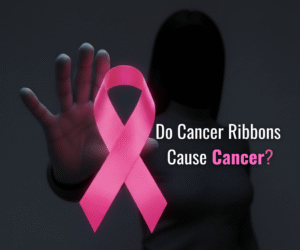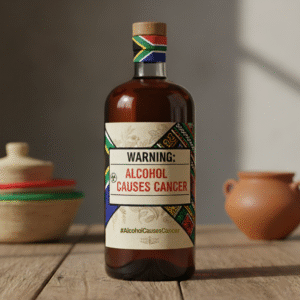What No One Tells You About Cancer at Work

One of the reasons why I don’t mind sharing my cancer story is because it creates space for others to share their story too.
Sometimes people don’t want advice – they just want to be heard. They need to say it out loud to someone who understands the uncertainty, without the pressure of protecting anyone else’s feelings. And often, it’s easier to open up to a stranger who gets it than to a loved one who feels compelled to fix it.
It’s mostly women who reach out to me. Women trying to juggle illness and identity, performance and survival.
Maybe it’s because women are more comfortable asking for help, or maybe it’s because men have been conditioned to see vulnerability as weakness. Either way, the fear is the same, and they’re not just terrified of dying, they’re terrified of letting people down.
But there’s one thing that comes up almost every time: work.
Not the cancer, not survival, or the side effects, but WORK!
“How do I tell my boss?”
“Will I lose my job?”
“Should I take the time off or tell ?”
Cancer might be a personal diagnosis, but it doesn’t stay in the doctor’s office. It follows you wherever you go – and no one tells you how to handle that part.
So let’s talk about it.
There isn’t an HR manual that prepares anyone for what happens when you walk into the office with cancer. There aren’t any team-building exercises that prepare your colleagues for the awkwardness of not knowing what to say. There isn’t a performance review that measures how much courage it takes to show up when your body is falling apart, when your treatment was rescheduled or delayed, or you were so exhausted mentally and physically that even the drive to work was a herculean task.
Cancer at work is a minefield. It’s uncomfortable because it reminds everyone that we’re dying, and no one knows what to say. And yet, as the saying goes, the show must go on – with or without you.
You Become Everyone’s Mirror
When you tell people at work that you have cancer, you instantly become a symbol. Not of strength, not of bravery – at least not right away – but of vulnerability. Of mortality. You can feel your colleagues measuring their words, nervously offering clichés like “Let me know if you need anything” or “Stay positive,” because your diagnosis triggers their worst fears. Your illness isn’t just personal – it’s intrusive and it unsettles their status quo. Suddenly, you’re no longer the employee of the month, you’re the one with cancer.
People Don’t Know How to Help – So They Don’t
Workplaces pride themselves on policies and procedures. But when an employee gets cancer, the system short-circuits. Managers mean well but stumble. Some overcompensate with forced sympathy or inappropriate jokes. Others withdraw completely. You might find your workload quietly redistributed without a conversation. Or worse, you’re expected to deliver the same results while juggling treatment.
The truth? Most companies are unprepared. They don’t know how to balance support with performance expectations. You might be offered unpaid leave instead of flexible hours. You might get a sympathy card. You might get fired.
You Start Editing Yourself
You downplay your pain because you don’t want to seem unreliable. You schedule your chemo on Fridays so you can “recover” over the weekend. You answer emails with a drip in your arm and nod through Zoom calls while fighting waves of nausea. You wear a wig or cap to look “normal.” You laugh at the jokes and keep things light because you don’t want to be the mood killer. You shrink your experience to make others comfortable.
Your Career Plans Shift – Whether You Want Them To or Not
Cancer rewires your priorities. That promotion you were chasing? It feels hollow when you’re trying to stay alive. The office politics? Exhausting. The job title? Meaningless. You start questioning everything – your role, your purpose, your boundaries. Sometimes, you come back with new clarity. Sometimes, you don’t come back at all. Not because you don’t want to, but because your body – or your employer, won’t let you.
There’s Guilt on Both Sides
You feel guilty for being sick. For taking time off. For needing help. For not being able to contribute the way you used to. You wonder if your colleagues think you’re slacking, even as you push through side effects they’ll never see. Meanwhile, your manager feels guilty for not knowing what to do. Your team feels guilty for complaining about deadlines when you’re fighting for your life. Everyone tiptoes. No one says what they really feel.
It’s Not Just About Surviving Cancer – It’s About Surviving the Workplace
The post-treatment phase is just as brutal. You return to work changed, but the job is still the same. Your energy is limited. Your brain fog is real. Yet, the world expects you to pick up where you left off.
But you’re not who you were. You’re scrambling for survival and hoping that no one notices that you’ve missed a step and lost your place.
What Needs to Change?
✓ Policies that protect workers with serious illnesses must go beyond lip service.
✓ Managers need training – not just in compliance, but in compassion.
✓ Colleagues should be given tools to support, not smother, someone with cancer.
✓ Workplaces must adapt, not because it’s a trend, but because it’s a responsibility.
Until we stop expecting people with cancer to be superheroes in suits, we’ll keep failing the very people who need us most.
Cancer at work isn’t just a health issue – it’s a human one.
Join JoziStyle’s WTF Cancer Project
If this article resonated with you, or made you realise how unprepared most workplaces are, then it’s time to do something about it.
I created the WTF Cancer Project to raise awareness, promote prevention, and confront stigmas about cancer. We’re meeting people where they are – online, on air, and in everyday life, through engaging media, workshops, and powerful digital campaigns.
Whether you’re an HR leader, a team manager, or someone who’s just survived cancer and gone back to work, there’s a place for you here.
- Book a cancer-awareness workshop for your team.
- Support the movement through our campaigns.
- Follow WTF Cancer for updates.
- Let’s build workplaces where empathy isn’t optional.
Surviving cancer shouldn’t mean sacrificing your career – or your dignity.
Follow WTF Cancer Project on Facebook.



